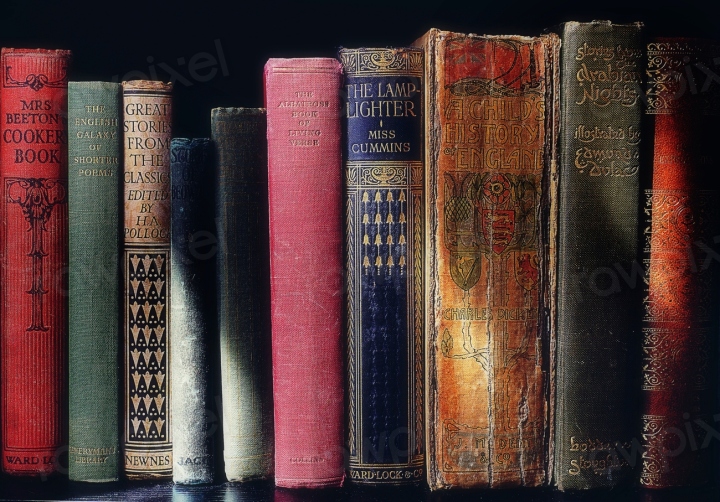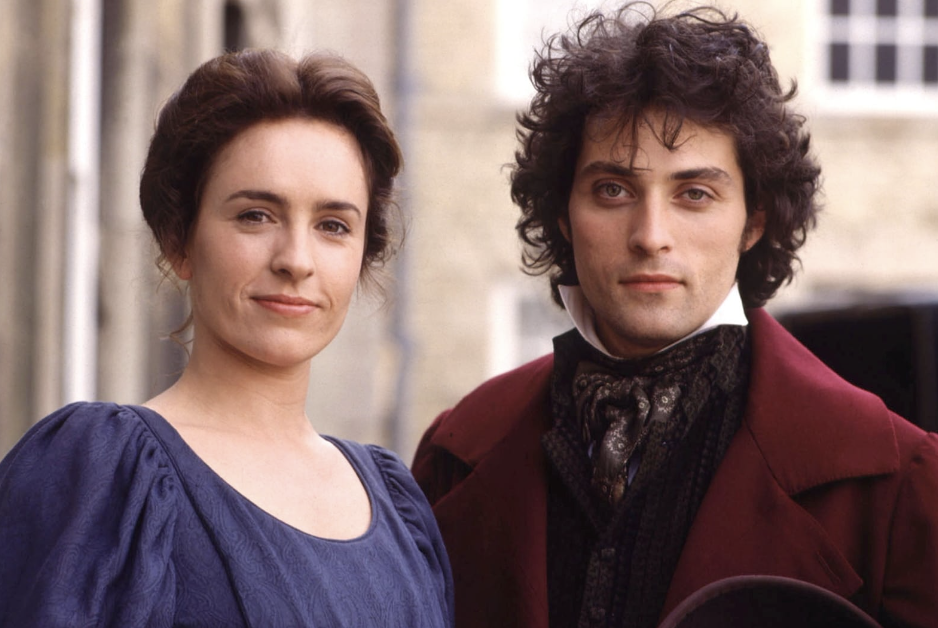
A friend told me she was trying to read Wuthering Heights but was finding it hard going. I was curious about why she was persevering if it wasn’t her thing. Regular readers know my stance on reading books you aren’t enjoying, but I also understand that people often feel embarrassed if they haven’t read books they think everyone else has, especially if they are classics.
I’m reminded of a scene in a movie where the main character reads Democracy in America (by Alexis de Tocqueville) because she thinks everyone has read it and she feels inferior. It’s only when she’s finished grinding her way through the enormous book and tries to discuss it with her new friends that she finds out no-one else has actually read it. They’re all just pretending and no-one has ever found them out.
And that’s the truth of it. Many people haven’t read Dickens, the Brontës or Jane Austen, and this doesn’t make them any less of a reader, or a person for that matter. My friend definitely doesn’t need to think she doesn’t measure up because she hasn’t read certain books.
To be perfectly honest, I’ve never read Wuthering Heights, but I have seen the movie and the characters always drive me crazy. There are just so dramatic and make totally stupid decisions.
Where to begin?
There’s something to be said for having a crack at something more challenging, but you need to choose carefully. Victorian literature is dense and wordy, so you may need to find a quiet place to really get into the story.
If you’re keen to read one of the classics, but don’t know where to start, I would try Jane Eyre by Charlotte Brontë. It’s a cracking story about an orphan who endures a miserable childhood, then as a young woman gets sent to work in the home of the wealthy and impetuous Edward Rochester. First published in 1847 under the name of Currer Bell, Jane Eyre is a bildungsroman (a coming of age story) that deals with class, sexuality and religion, but it’s also a wonderful love story with a satisfying ending. Along with Pride and Prejudice, and Gone with the Wind, it’s one of the most famous love stories of all time.
The Tenant of Wildfell Hall
Another book I enjoyed is The Tenant of Wildfell Hall by Anne Brontë. Published in 1848 under the name of Acton Bell, it remains remarkably relevant today with its strong feminist themes and portrayal of a woman escaping domestic abuse.
Helen Graham is a beautiful and secretive young woman. She moves into Wildfell Hall with her young son and the locals are desperate to know more about her. A man named Gilbert Markham offers Helen his friendship, but as local gossip and speculation surround her reclusive behavior continue, he wonders if he has misplaced his trust in her.
The shocking details of the disastrous marriage she has left behind emerge when she allows Gilbert to read her diary…
‘A powerful novel of expectation, love, oppression, sin, religion and betrayal’.
Daily Mail
Middlemarch
A third suggestion is Middlemarch by George Eliot (Mary Ann Evans). It’s a very long book and was originally published in eight instalments. Set in a fictitious town in England in the early 19th century, it tells the story of Dorothea, an intelligent, earnest woman who makes the mistake of marrying Edward Causabon, a man many years her senior. He’s a pompous scholar and bore and his main reason for marrying is to use Dorothea as his personal secretary. Dorothea promptly falls in love with Will Ladislaw, Edward’s idealistic cousin, but tries to remain faithful to her husband, even after his death (silly woman).
I read it many years ago and loved it, but if you really don’t think you can make it through such a long book, look out for TV series (made in 1994) which stars a young and very handsome Rufus Sewell as Will Ladislaw, and Juliet Aubrey as Dorothea.

Why did they use pen-names?
All three novels were published under male pseudonyms, a common practice in Victorian times. Some women wanted to be able to write more freely, others wanted to be taken more seriously. In the case of Eliot, its been suggested that she avoided using her own name because of her elopement with journalist and critic George Henry Lewes, a married man with whom she lived happily for many years.
According to this article, Eliot “relished being thought of as a male and was disappointed when people thought otherwise.” Until Eliot’s first mass publication, The Sad Fortunes of the Reverend Amos Barton in 1957, George Eliot was thought to be male. Eliot was outed in 1958 by a widely circulated letter written by Charles Dickens, who pointed out that the piece was too feminine to be written by a male.
Following Lewe’s death in 1878, Eliot subsequently married her accountant, John Cross and was criticised for this as well. She just couldn’t win!
Want more reading recommendations?
Sign up for Book Chat, a newsletter for readers and eaters.

An excellent piece, Margaret! Makes me want to reread Jane Eyre, which I loved, tackle Middlemarch again (as I’m ashamed to say I never did get through it) and both read and watch The Tenant of Wildfell Hall, which sounds like my cup of tea. I do love 19th century British lit and don’t mind the length if the story is engaging.
Thanks so much. I wonder if I would get through Middlemarch today. My attention span is definitely not what it used to be.
Margaret, I strongly recommend giving Wuthering Heights (the book) a chance! The framing device is hilarious: the novel begins with the arrival of a new tenant, Mr. Lockwood, an entitled, interfering busybody who imposes himself on a cast of miserable characters who want nothing to with him. Eventually, one of the servants tells him the story of the family problems. All the characters have terrific fatal flaws and are their own worst enemies, but the main ones are human enough to keep me interested. Finally, out of all the eye-roll-making tragedies comes a glimmer of happiness at the end. The book is fun, and much better than any of the dramatizations.
That’s very interesting. I will take your advice.
There’s a certain satisfaction in finishing a difficult book. I admit that I haven’t widely read the classics but I did love the Brontes when I was much younger and was surprised at how funny Dickens can be despite the grim topics. And I love Jane Austen. Again, quite funny and witty.
I sometimes wonder if my capacity for reading more demanding books has waned over the years? What do you think?